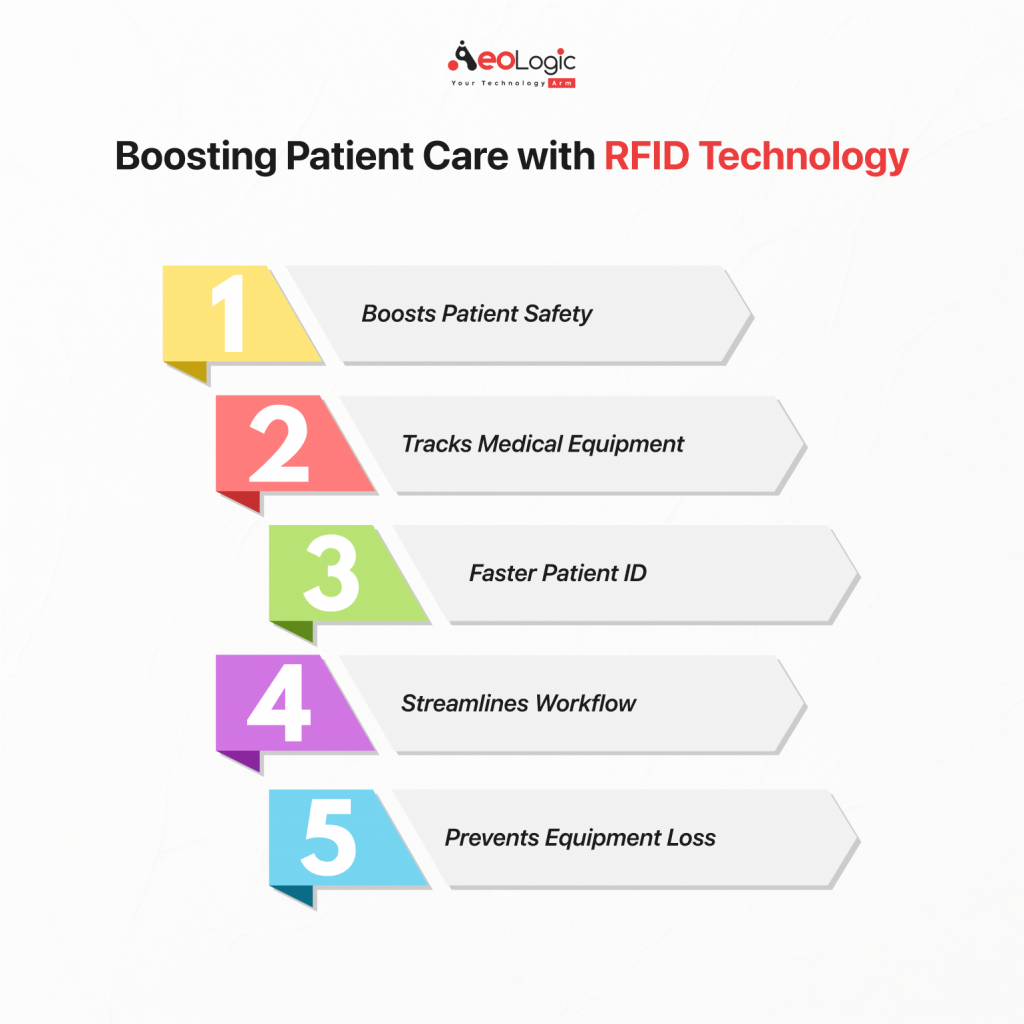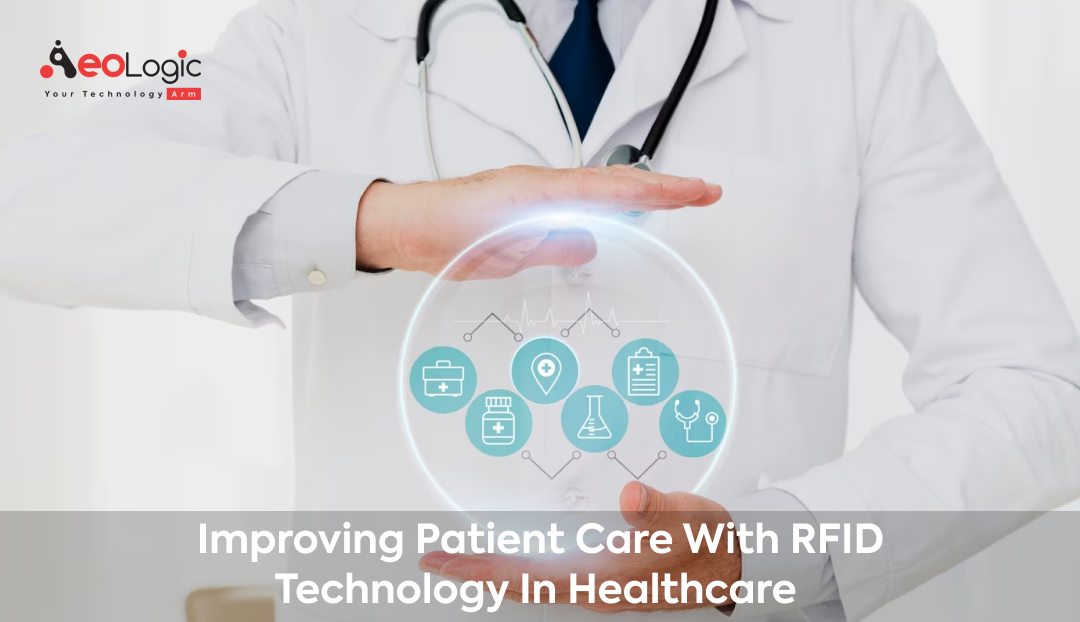The world of business is changing fast and the healthcare sector has not been left behind; towards continued advancements, RFID technology emerged. RFID which means Radio Frequency Identification is not only a device but also it’s a reform of taking care of the patient by providing remarkable benefits. Supply chain management technology which, has been it a key area of use now finds its rightful place in healthcare settings. In this blog, we discuss the RFID technology in patient care and where it is changing the world of health services.
RFID technology applicable in patient care is not ordinary slang; it can be termed as a symbol of effectiveness and safety. This ability to track and monitor, not only the equipment but also patients and staff as well, guarantees a level of care and management never before enabled. In this section of the report, we will delve into a number of benefits provided by RFID while discussing how widely it can be used in practice to ensure high-quality patient care and also uncover its fundamental role within contemporary medicine.
RFID Technology in Patient Care?
The fundamentals of RFID technology in patient care must be clear to the user. In its essence, RFID is a method of using electromagnetic fields to automatically identify and track tags attached to objects. In the practice of health care, these tags can be located on a variety of items ranging from medical equipment to patient wristbands.
The distinguishing factor of RFID technology in health care is that it supplies the current information. RFID does not need a line of sight for scanning, unlike the barcode technology. This creates an opportunity for immediate retrieval of the crucial information which is very vital in a fast-moving provider environment like medical facilities. The implications of this technology for improving patient care are very enormous.
Also Read: Cybersecurity in Healthcare: Importance and Use Cases
RFID Enhancing Patient Safety

To ensure patient safety is of the utmost importance and RFID technology has a key role to play in this area when it comes to the care of patients. Using RFID wristbands to tag patients, the hospitals will have the location of their patients in real time hence significantly reducing cases of patient wandering or baby missing. Furthermore, the RFID tags guarantee that a patient’s identification is correct something which can be very important in ensuring that treatment will only be administered based on the proper patient documentation.
Additionally, when it comes to patient care, the use of RFID technology helps a lot in reducing medication errors. In the case of RFID-tagged medications, caregivers can identify and link a patient’s identification details to the prescribed medicine hence ensuring that risks related to ADEs are minimized. This level of exactness in patient care represents a magnification effect for the use of RFID technology in healthcare.
Do you know? Role RFID Traceability in Medical Device Industry
Streamlining Hospital Operations
The advantages of RFID technology in patient care that go beyond enhancing the treatment processes are those concerned with the flow of activities within a hospital. RFID simplifies the process of managing the inventory. Hospitals are capable of monitoring the utilization and position of the medical equipment, allowing important products to remain accessible and any necessary repairs can be performed concerning outdated technology or damaged tools. This practice reduces the costs incurred in running the facility and also helps to enhance the better patient outcomes.
RFID technology further helps to improve the work processes within the departments. By monitoring the positions visited by healthcare staff, the hospitals can study their patterns and then point out weak areas to make more advanced improvements. This not only improves the effectiveness of care provision but also it reduces the workload on healthcare providers enabling them to pay more attention to patient care.
Real-Life Success Stories
To be able to perceive in reality how much the RFID technology helps patient care, it would not go amiss to learn about some examples of success. Hospitals that have adopted RFID for use in their organizations say they are recording great gains across a very broad range of functions. For example, the application of RFID technology in medical equipment management has resulted in fewer cases of loss as well as improvements in maintenance schedules.
In addition, patient RFID wristbands have increased the ability to track and identify patients reducing medical errors significantly as well as contributing towards improved overall safety of a growing number of many struggling tout find affordable solutions. These achievements help to realize the real value that patient care using RFID technology can offer and place this means of identifying patients as an irreplaceable tool for the modern healthcare.
Also Read: Future Healthcare Technology That Will Change the World
Future Trends and Market Statistics
The managed healthcare market statistics provide optimism as to the future of RFID technology applications in patient services. Recent reports indicate that the worldwide RFID in the healthcare industry will record massive growth come the following years. This growth is based on the growing demand for cost-effective healthcare alternatives and uninterrupted digital health incarnation.
In addition, developments in RFID technology only broaden its uses within patient care. The options are vast, ranging from e-hospitals employing RFID technologies for the overall administration to tailored patient handling using wide-ranging tracking. These market dynamics and future trends highlight an increased relevance of RFID technology in the area of patient care.
Also Read: Information Technology Solutions for Healthcare
Final Thoughts
The technology is not just an invention for innovations only but rather a means of need in the health care throughout this modern day sound. Its various uses, ranging from improving the safety for the patient to simplifying daily hospital activities show how important it is. As we progress in time, the use of RFID technology in the healthcare is bound to increase due to past performance effectiveness and a promising future.
Adopting RFID technology in patient care systems is a move towards achieving an effective, quality and also consumer-focused healthcare delivery system. Its effect is very vivid, its merits unarguably positive. The revolution of the healthcare is here and it becomes one with every new step that RFID technology makes in patient care.
To discover more about how RFID technology can revolutionize patient care in your organization, connect with Aeologic Technologies.







